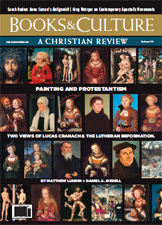Tonight, employees at the Advisory Board have an unusual task: Stay off e-mail.
Stash away those smartphones and laptops, the District firm has instructed. For those who just can’t stay away, read but don’t reply. And while we’re at it, ignore your inbox throughout the weekend, too, the firm added.
The consulting firm’s push for no after-hours e-mail is part of a growing effort by some employers to rebuild the boundaries between work and home that have crumbled amid the do-more-with-less ethos of the economic downturn.
In recent years, one in four companies have created similar rules on e-mail, both formal and informal, according to a recent survey by the Society for Human Resource Management. Firms trying out these policies include Volkswagen, some divisions of PricewaterhouseCoopers and shipping company PBD Worldwide.
For the vast majority of companies and federal offices, the muddying of work and personal time has had financial advantages. Corporations and agencies, unable to hire, are more productive than ever thanks in part to work-issued smartphones, tablets and other mobile technology, economists say.
And that presents one of the great conundrums of our recessionary era: E-mail has helped companies eke out more from each worker. But the perpetually plugged work culture is also making us feel fried.
“There is no question e-mail is an important tool, but it’s just gone overboard and encroached in our lives in a way where employees were feeling like it was harder and harder to achieve a good balance,” said Robert Musslewhite, chief executive of the Advisory Board, a health and education research and software-services firm.
Official numbers show just one in 10 people brings work home, according to a Labor Department report in 2010. But economists say that figure is wildly conservative because it counts only those who are clocking in those hours for extra pay.
More often, employees work evenings and weekends beyond their normal hours and do not record that time with their employers, labor advocacy groups say. And that’s made work bleed into just about every vacant space of time — from checking BlackBerrys and iPhones at school drop-offs, on the way home from happy hour and just after the alarm clock rings, they say.
via After-hours e-mail, companies are telling employees to avoid it – The Washington Post.
Some professions just don’t fit the 9 to 5 hourly breakdown. If you own or are responsible for a business, you are thinking about it round-the-clock. Even with me, a professor and college administrator, I find myself thinking about what to present in my classes or what to do about some problem at any time in the day or night, including when I toss and turn in the middle of the night (where I seem to get my best ideas).
It’s worth noting too that when Luther was articulating the doctrine of vocation, there was no boundary between work and home, since most work–farming, crafts, most trades–was done at home (as opposed to what happened after the industrial revolution when most economic labor took place away from the family). Thus Luther wrote about the vocations of the “household,” which included both the family callings such as marriage and parenthood and what the family did to earn a living.
And yet, arguably, the invasion of the home by the workplace, abetted by technology, may well be eroding the other vocations we have. Notice how when we hear the word “vocation” we immediately think of our “job.” In Luther’s day and in the Biblical writings about “calling” (e.g., 1 Corinthians 7:17), people would first think about things like marriage. (See our book on the subject, Family Vocations.)
There is little doubt that today people are neglecting their callings as spouse, parent, church member, citizen, et al., because of their pre-occupation with their work and the enabling device of their smart phones. Would you agree? Do we need to “rebuild the boundaries between work and home”? Or do we need to break down those boundaries, but in a different way than we have been doing?















